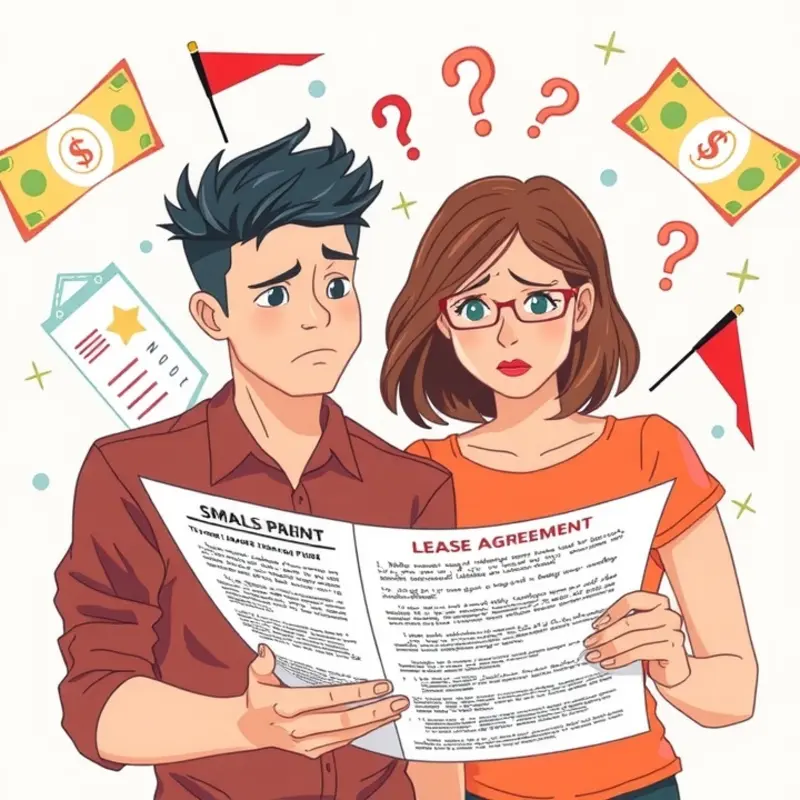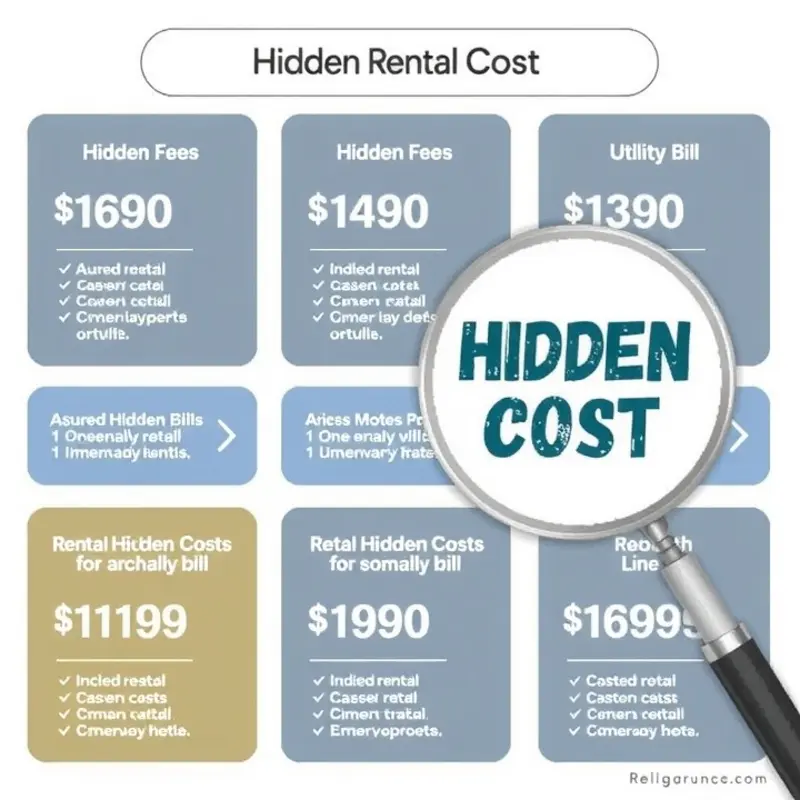Searching for the perfect apartment can feel daunting, especially for young professionals, first-time renters, students, couples, and families. With so many options and financial commitments, it’s vital to spot red flags before signing a lease. Understanding the financial implications can save you from hidden costs, unexpected expenses, and long-term regret. Whether it’s understanding if your rent is within budget, recognizing signs of a sketchy landlord, or uncovering sudden fees, vigilance is key. It’s not just about finding an apartment but ensuring it’s financially sound and suited to your lifestyle. From reviewing lease agreements to communicating effectively with landlords, being informed is the best way to go. This guide will walk you through the most common financial red flags to watch out for in your apartment hunt, empowering you to make an informed decision and secure a place that feels like home.
Spotting Lease Traps: Common Financial Pitfalls

When signing a lease, the excitement of moving into a new apartment can sometimes overshadow potential financial traps hidden within the agreement. Knowing how to identify these pitfalls can save you from unexpected expenses and help you maintain control over your finances.
One of the first areas to scrutinize is the fees outlined in the lease. Administrative, application, and move-in fees can quickly add up. While some fees are standard, be cautious of excessive or redundant charges that may be negotiable. Always request a detailed breakdown and seek clarification on any fees that seem unjustified.
Another area to examine is the conditions related to security deposits. Some landlords impose unfair deposit deductions for normal wear and tear, which should not be the case. Check if the lease clearly outlines the conditions under which deductions are permissible. It’s wise to document the apartment’s condition at both move-in and move-out to support any disputes.
Leases often contain clauses concerning maintenance and repairs, potentially leading to unexpected costs. Specifically, look for leases that require tenants to cover the cost of repairs that may arise. Clarify what maintenance is included in your rent and what you’re responsible for. This can prevent unexpected bills from arising when maintenance issues eventually occur.
Be wary of rigid rent escalation clauses. These clauses detail how and when your rent might increase. A lease with vague or frequent escalation terms can disrupt your budgeting. Make sure any rent increase terms are reasonable and align with local rent control laws, if applicable.
Finally, dig into any early termination clauses. Life changes can force a move, and draconian termination fees are costly. Look for leases that outline transparent processes and reasonable fees for lease termination. Discuss having the option to sublet or find a replacement tenant to mitigate potential financial damage.
For further tips on managing financial aspects of leasing, see financial planning for renters. Understanding these common pitfalls helps pave the way for a smooth rental experience, safeguarding your budget against unnecessary stress.
The Red Flags in Rental Costs: What to Look For

When reviewing potential apartments, rental costs often extend beyond the monthly rent. It’s the hidden fees that can unexpectedly crank up your living expenses. First, consider utility costs. Some leases include utilities like water and gas, but others may not. Verify what’s covered and ask for estimates of past utility bills. This can help you assess whether you can sustain the full expense month-to-month.
Another aspect to evaluate is move-in fees. These fees often catch renters off guard because they can include a range of costs—deposit, first and last month’s rent, and sometimes parking or amenity fees. Understand these upfront and ensure they fit your budget.
Renovation charges can also be a red flag. If the apartment is due for upgrades, you might face a sharp increase in rent. Before signing, confirm the current state of the apartment and any slated improvements. While fresh renovations can be enticing, they might come with rent hikes that stretch your budget.
Read the lease agreement carefully regarding repair responsibilities, particularly for appliances. In some cases, tenants might need to cover certain repairs, which adds to monthly living costs. Ensure clarity on these obligations to avoid unexpected bills.
Review any clauses about periodic assessments and rent adjustments. Some landlords include mandatory rent reviews that could mean regular increases. Knowing these details can prevent painful surprise hikes later.
Lastly, don’t overlook renters’ insurance, often a requisite for lease approvals. This essential coverage protects against personal property losses but varies in cost based on coverage levels. Compare plans to find one fitting your needs.
Avoid the unpleasant surprise of late payment fees by outlining exactly when rent is due and the penalties for late payments in the lease. Although a few days late might incur small fees early on, these can quickly accumulate over a year.
Prioritize studying all rental costs comprehensively. To unlock the ideal apartment without financial strain, conduct thorough due diligence on potential unexpected charges. Investing this effort can save financial hassle and ensures an enjoyable living experience. For additional resources on managing rental finances, consider exploring financial planning for renters.
Final words
Being aware of financial red flags when renting an apartment is crucial in ensuring a smooth transition into your new home. Young professionals, students, couples, and families all deserve the peace of mind that comes from understanding their financial commitments. Always read the lease thoroughly, check for hidden fees, and don’t hesitate to ask your landlord questions to clarify any concerns. Empowering yourself with this knowledge not only protects you financially but also enhances your overall renting experience. Remember, it’s about making the best choice for your lifestyle so you can create a loving and comfortable home environment without strain.









